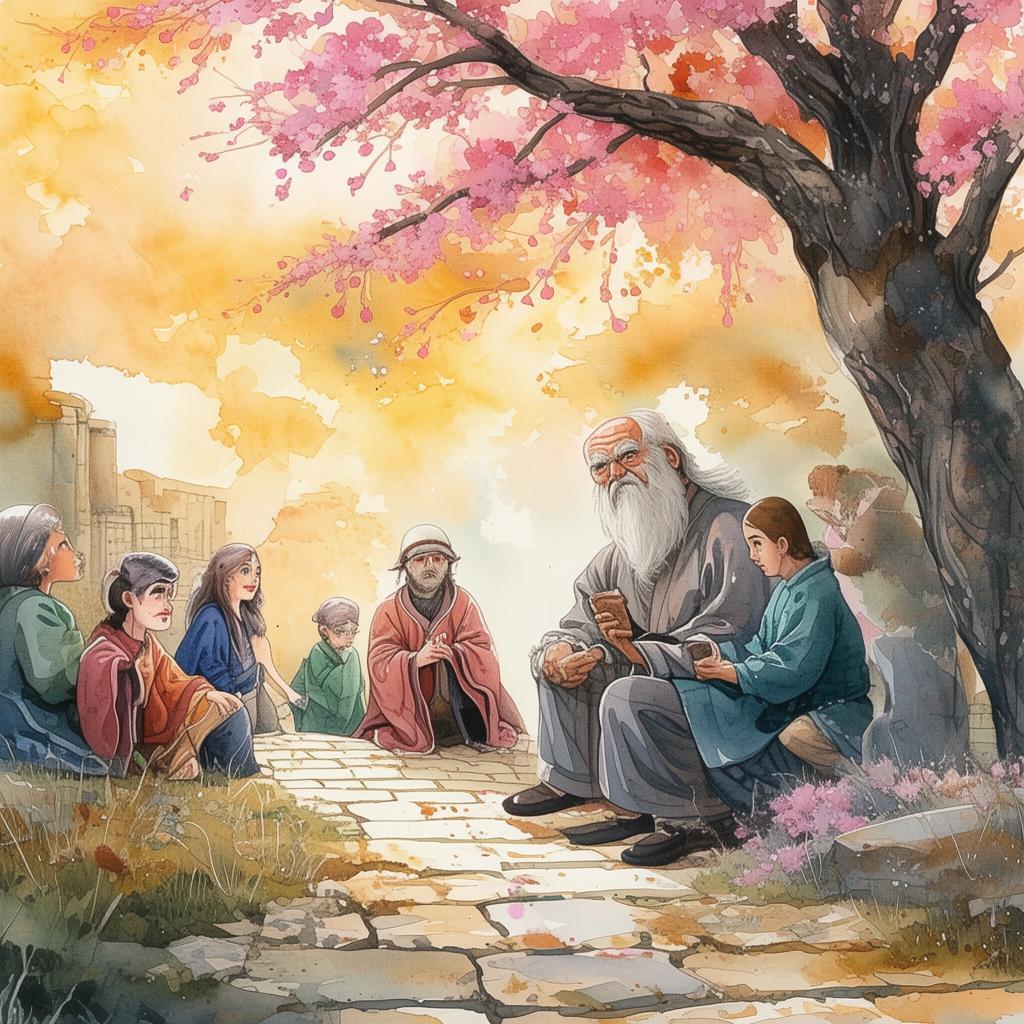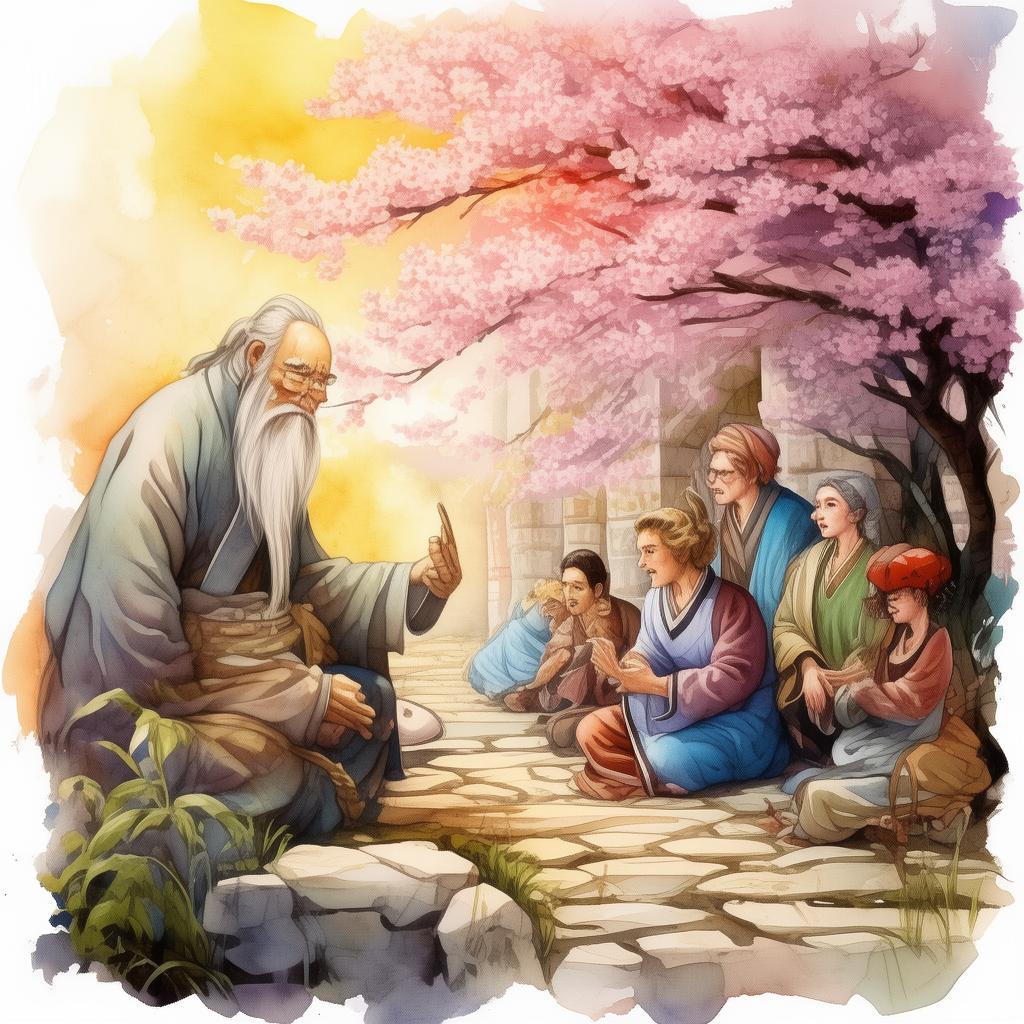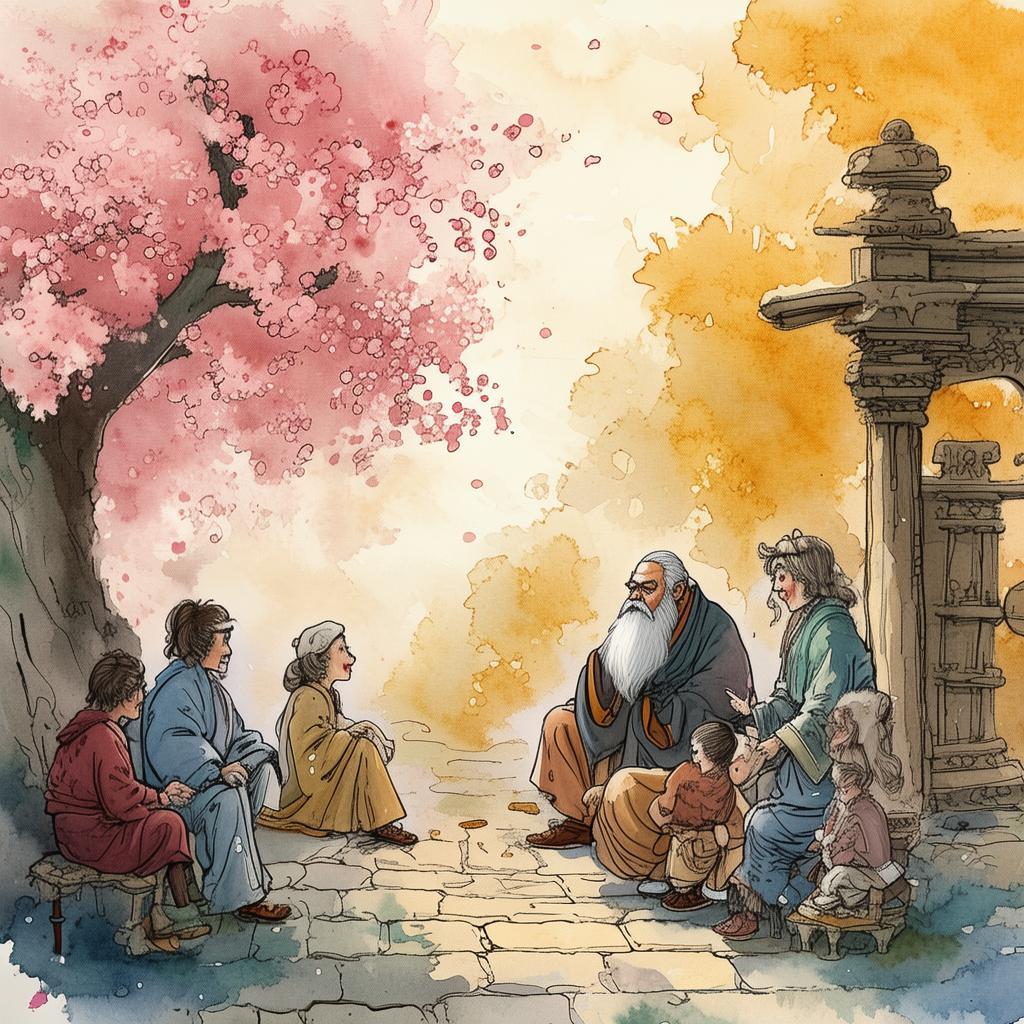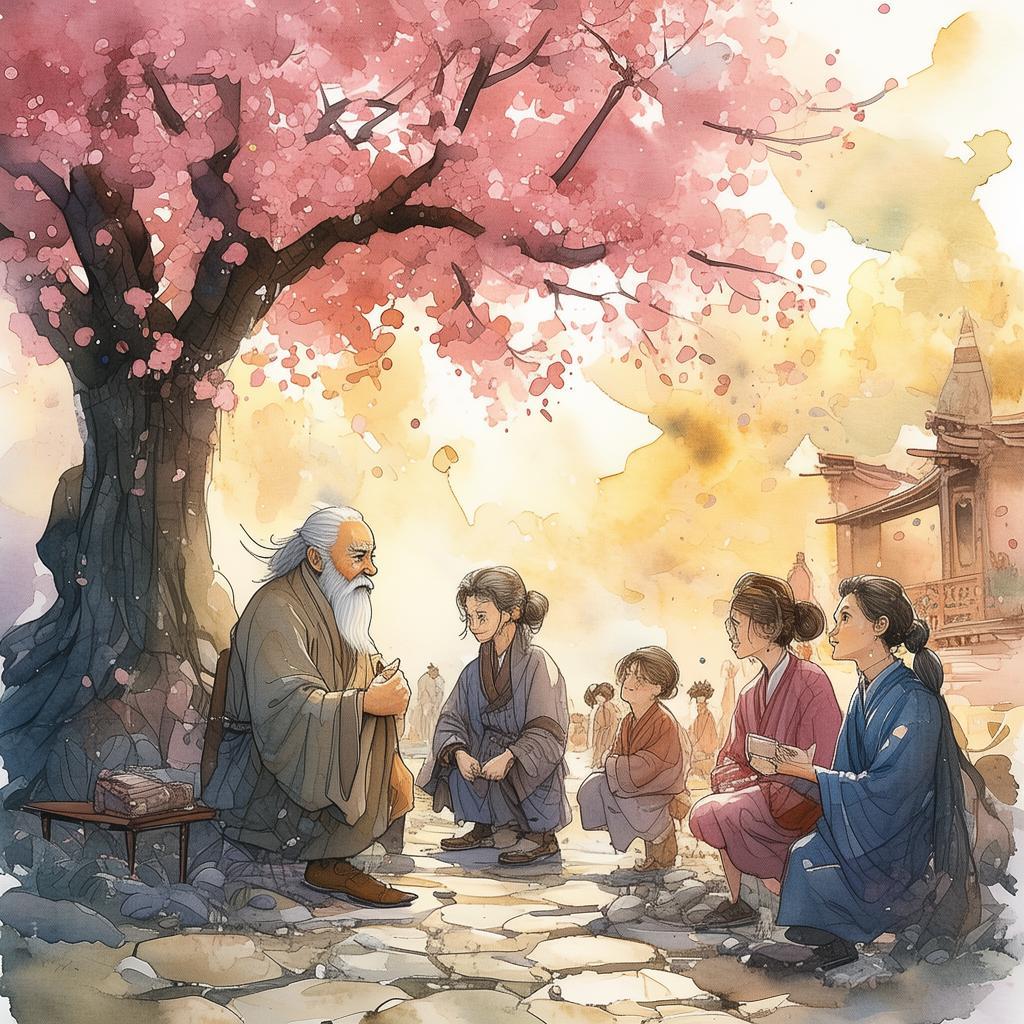The Scribe's Pursuit: The Quest for the Lost Scriptures
In the ancient city of Chang'an, amidst the towering walls and bustling markets, there lived a scribe named Lü Qing. Renowned for his exquisite calligraphy, Lü Qing was an enigma among the scholars of his time. His passion for the written word was matched only by his insatiable curiosity for the ancient scriptures that had been lost to time.
It all began when Lü Qing stumbled upon an old, leather-bound book in a dusty corner of the city's largest library. The book, titled "The Calligraphy Quest," contained cryptic instructions and a map leading to the fabled "Lost Scriptures." The map showed a series of locations scattered across the vast empire, each marked with a unique symbol that represented a key aspect of ancient Chinese culture.
The first stop on Lü Qing's quest was the sacred mountain of Taihang, where the symbol of the dragon was etched into a cliff face. With determination in his heart, Lü Qing climbed the treacherous path, using his knowledge of calligraphy to decipher the ancient runes that protected the entrance to a hidden chamber. Inside, he found a scroll inscribed with the story of a great sage who had once hidden the scriptures to safeguard them from falling into the wrong hands.
Next, Lü Qing journeyed to the ancient city of Luoyang, where the symbol of the phoenix was emblazoned on the walls of a forgotten temple. He sought the help of an elderly monk who had spent his life studying the scriptures. The monk revealed that the next clue was hidden in the ancient library of Xuanwu, a place shrouded in legend and mystery.
As Lü Qing entered Xuanwu Library, he was immediately overwhelmed by the magnitude of its collection. He spent days searching through the endless shelves, until he finally discovered a hidden compartment behind a book of esoteric philosophy. Inside, he found another scroll, this one detailing the life of a forgotten hero who had once protected the scriptures from being stolen.
The final clue led Lü Qing to the remote desert oasis of Dunhuang, where the symbol of the tortoise was carved into the entrance of a cave. With the help of a band of nomadic tribespeople, Lü Qing braved the perilous desert to reach the cave. Inside, he found a chamber filled with ancient artifacts and scrolls. Among them was the final scroll of the Lost Scriptures.
As Lü Qing unrolled the scroll, he realized that it was a collection of wisdom and knowledge that had been lost to the world for centuries. The scroll contained the secrets of ancient Chinese civilization, including medical remedies, agricultural techniques, and even the origins of the Chinese language.

However, as he celebrated his triumph, Lü Qing was confronted with a difficult choice. Should he reveal his discovery to the world, or should he keep the knowledge hidden for fear that it would be misused? After much contemplation, he decided that the true value of the scriptures lay not in their power, but in their ability to inspire and educate.
With this realization, Lü Qing began to transcribe the scrolls, sharing his findings with the scholars of Chang'an. His work sparked a revolution in the world of knowledge, and the Lost Scriptures became the foundation of a new era of enlightenment.
The scribe's pursuit had not only uncovered the lost wisdom of ancient China but had also changed the course of history. Lü Qing's name was etched into the annals of time, not as a discoverer of secrets, but as a scribe who had the courage to pursue knowledge and share it with the world.
Through his journey, Lü Qing had learned that the true power of the Lost Scriptures lay not in their content, but in the spirit of curiosity and determination that had driven him to seek them out. And so, the story of the scribe's pursuit became a testament to the enduring power of the human spirit to seek, to discover, and to share the wisdom of the ages.
✨ Original Statement ✨
All articles published on this website (including but not limited to text, images, videos, and other content) are original or authorized for reposting and are protected by relevant laws. Without the explicit written permission of this website, no individual or organization may copy, modify, repost, or use the content for commercial purposes.
If you need to quote or cooperate, please contact this site for authorization. We reserve the right to pursue legal responsibility for any unauthorized use.
Hereby declared.









